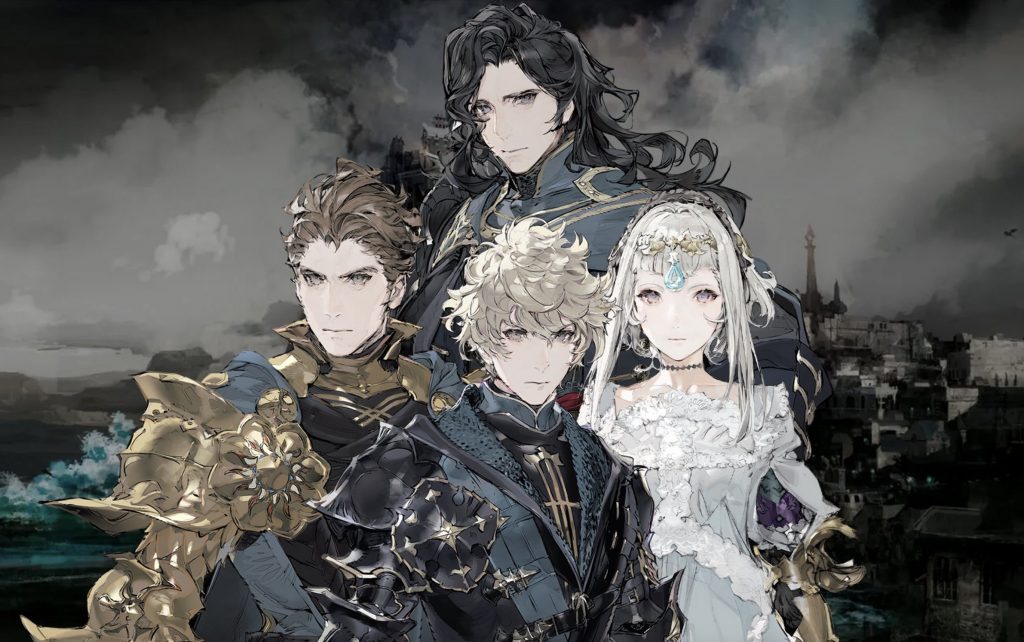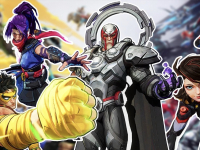The DioField Chronicle is yet another JRPG from the giant that is Square Enix. Allegedly not out of ideas quite yet despite all the remakes on the horizon, will The DioField Chronicle become the start of another franchise?
From the get-go, the game clearly seeks inspiration from popular fantasy narratives like Game of Thrones and Fire Emblem, particularly the latter with its strategy take on the genre. However unlike either of these, it struggles to carve out its own distinct identity, resulting in a somewhat generic rendition of what came before, an amalgamation from inspiration – yet less than the sum of its parts… I’ll stop waffling.
The world of DioField is reminiscent of a typical Dungeons & Dragons campaign setting, complete with an evil empire’s quest for domination and characters bearing names fresh from ‘Fantasy Character Generator’. Although it ventures into the realm of fantasy tropes, the game manages to exude a certain sense of homeliness, even if the predictability of its elements leaves much to be desired.
One commendable aspect lies in the exceptional voice cast, which breathes life into DioField’s world. With the inclusion of Doug Cockle, the esteemed voice of Geralt of Rivia (and most lately found in the delightful Tails of Iron by this reviewer), the narration becomes particularly captivating. Regrettably, the voice direction falls short, resulting in stiff and unenergetic deliveries during crucial conversations regardless of the casts’ efforts. Despite the characters harbouring unexpected backstories and motivations, the English dialogue often lacks authenticity. Unfortunately, with there being so many issues in regards to the narrative, the game starts to signpost itself as ‘cookie cutter Square Enix’ quite quickly.
In terms of combat, The DioField Chronicle exhibits solid fundamentals. But, whilst the real-time combat system introduces a twist from turn-based strategy, the control scheme often proves challenging, hindering the seamless execution of engaging battles, often leading to pausing the action mid-way to try and keep up with all the convoluted option – opposed to setting up all your actions for a turn.
The gameplay might unfold like a pausable real-time Fire Emblem adventure, granting players the freedom to plan their moves strategically – but again, the muddled controls can break this planning experience making it feel rushed and clumsy. Environmental interactions and diverse class abilities serve to try and enrich the combat experience and it’s not without some moments of excitement. When plans do work, there’s a bit of a rush through you as a player as your coordinated attacks, utilising the environment and clever positioning, come to fruition.
Amidst the thrill of combat, the game’s control scheme really does become a hindrance. Poorly designed for a controller, it remains irksome, possibly better on a mouse and keyboard, but I’ve seen mixed reports there too when checking. Unit selection often proves imprecise, and leaves players scrambling to regroup during intense battles. As a result, certain actions demand more steps than necessary, fostering a sense of frustration that lingers throughout the experience.
Nevertheless, despite these shortcomings, The DioField Chronicle encourages replayability with its fairly short missions and emphasis on achieving bonus objectives. Each mission, lasting around five to ten minutes, maintains a brisk pace, preventing the campaign from bogging down too quickly, and does in fairness make it suitable for quick bouts of gameplay. Notably, the variety of enemies and diverse encounter designs prevents repetitiveness, ensuring each mission feels distinct.
The journey through DioField is of course boosted by its expansive progression systems. Threatening to be overwhelming, players grapple with various currencies and upgrade paths for individual characters and their classes. As the game unfolds, players hopefully get to grips managing ability points, skill points etc etc… leading their mercenaries to grow.
The gradual transformation of a ragtag group of sellswords into an awe-inspiring fighting force proves gratifying if not completely expected – and the lack of too much pointless loot is actually quite refreshing. Visually, DioField presents a pleasing aesthetic, although it may not astound audiences with cutting-edge lighting or character models. The game compensates with a strong art direction as one expects from the powerhouse that developed it. It does actually manage to give the impression of a distinct identity for each character too – up until the dialogue and animation kick in.
Regrettably, the game’s vibe becomes reminiscent of a generic D&D fantasy realm and as such, the game struggles to break free from convention, making it feel indistinct despite some early promise. In the midst of these mixed aspects, moments of exhilaration arise when players summon Bahamut to unleash destruction upon their foes. These moments provide brief respites from the game’s concerns, if only for fleeting instants.
Whilst the game gives some exciting moments, as you’d expect from a designer known for utter spectacle – it manages to fall flat in the middle of scoring. Nothing is technically awful about it – but it definitely holds it back from being good.
Author: Tom, Cardiff Store







